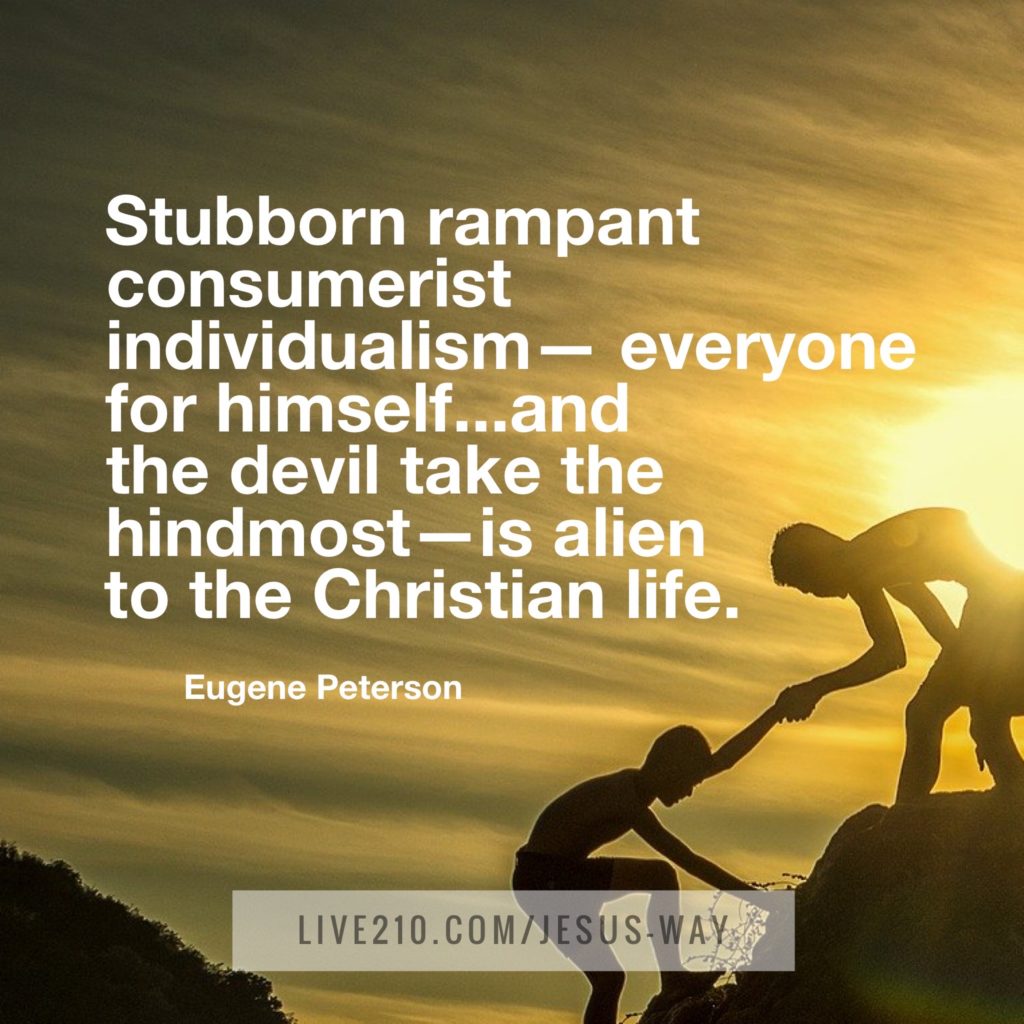7 min. to read.
When congresspeople get to Washington, one of the first tasks in their governing work is receiving their committee assignments. There are more than fifty committees that do the work of investigating, researching, refining, and writing legislation.
One of these committees is the Ways and Means Committee, arguably the most important committee in congress. It’s more influential than even the Intelligence Committee or the Armed Services Committee. Why is this strangely named committee so important? church that’s doing great things in the community.
Because the Ways & Means Committee writes the national budget, it is responsible for how our money is allocated. Other committees suggest what we should do, but it is the Ways & Means that deals with the most practical concern for how these ideas get done.
Christians are prone to focus on big ideas. We love to talk about mission and vision. We enrobe our work in vague generalities like “Reaching the World” and “Loving on People.” But there is no Christian life without thinking hard about the ways and means.
In what way will we do our life? What means will we use to accomplish our goals?
Eugene Peterson was an American pastor, professor, theologian, and writer. He passed away in 2018, but his work continues to be a guiding influence for many followers of Jesus. Best known for his paraphrase of Scripture called The Message, Peterson also has a long library shelf of other thoughtful work. In his book The Jesus Way: A Conversation on the Ways that Jesus is the Way, he tackles this question of Ways and Means.
Our culture is fanatically devoted to ends. We want to accomplish things. Businesses look for quarterly results, and churches look for increased attendance and giving. We ask kids what they’re going to be when they grow up. So-called influencers glut social media with vapid encouragement, urging us to seize the day. There are things we want to achieve!
With our focus so locked on outcomes, we don’t think much about how we get there. In many cases, we truly believe that if we have a good and righteous end in mind, how we get behave along the way doesn’t matter much.
Peterson challenges this. Christianity is not just about our beliefs. He wrote, “Jesus as the truth gets far more attention than Jesus as the way.” How we get where we’re going is where our faith is genuinely defined. If the way we do things doesn’t align with the Spirit of Christ, then the outcome isn’t Christian — no matter well-intentioned or righteous the goal. For the Christian, good things cannot be accomplished in unChristlike ways.

Thoughts on our Ways & Means.
Here are some of the observations in The Jesus Way that moved me most. For your consideration:
Peterson was deeply concerned that Christianity must have practical implications in the day-to-day of our lives and the specific contexts we find ourselves in. To this end, he wrote:
“The ways Jesus goes about loving and saving the world are personal: nothing disembodied, nothing abstract, nothing impersonal. Incarnate, flesh, and blood, relational, particular, local.” (The Jesus Way, p. 1)
“The end, for Christians, is God’s work of salvation. This is a salvation understood as comprehensive, intricate, patiently personal, embracingly social, insistently political. Salvation is the work of God that restores the world and us to wholeness.” (The Jesus Way, p. 7)
“The way of Jesus is not a sequence of exceptions to the ordinary, but a way of living deeply and fully with the people here and now, in the place we find ourselves.” (The Jesus Way, p. 33)
Peterson also spends a great deal of time reflecting on all the ways we avoid living the Jesus way. It’s remarkable! The people who claim to follow Jesus spend so much time and effort actively avoiding following Jesus’ way. A few comments in this direction:
“The great, great granddaddy of all sins is the denial of sin, the refusal to admit sin.” (The Jesus Way, p. 91)
“Stubborn and rampant consumerist individualism—everyone for himself, herself, and the devil take the hindmost—is alien to the Christian life.” (The Jesus Way, p. 224)
“We [often] contrive to set aside a sacred place for God, designed, we say, to honor God but really intended to keep God in his place, leaving us free to have the final say in everything else that goes on outside that space.” (The Jesus Way, p. 120)
“Jesus was not scrupulous about purity. He associated freely with common prostitutes and the venal, money-grabbing tax-collectors…Any time we interpret Jesus’ invitational command ‘Follow Me’ as a recruitment into a select spiritual company, we totally miss what he was doing. Any time we target our invitation to people we assume are especially useful at the kingdom—the prominent, the wealthy, men and women with proven leadership abilities and skills that can benefit the kingdom—we are ignoring the way Jesus went about it.” (The Jesus Way, p. 239)
Jesus is the Way, not just the Truth.
Peterson is clear on our need for a clear path toward God. He wrote: “All of us, if we only knew it, are on a hunt for the holy, for a life that cannot be reduced to the way we look or what we do or what others think of us.” We need connection to Ultimate Reality. At the same time, we cannot limit who God is. Peterson, again: “We cannot reduce God to our experience or our understanding of him.” That’s our struggle.
An easy faith, with seven steps to Godliness, is so attractive. A plan to fix the world by filling congress and the courts with loyal Christians seems like an effective solution. To only believe in a list of doctrines is so easy. But that is substituting our ways and means with those of Jesus. When we take that path, the outcome, no matter how righteous our intention, is not of Christ.
Jesus famously said, “I am the way, the truth, and the life.” That means we can’t reduce Jesus to name badge marking our belonging in the right club. We can’t reduce Jesus to a doctrinal point that we can hold in mind as a part of our belief system. We can’t even reduce him to the mechanism by which we are forgiven and gain eternity.
None of that will do. Peterson neatly sums up our calling. “Following Jesus necessarily means getting his ways and means into our everyday lives.”
Book Details
Title: The Jesus Way: A Conversation on the Ways that Jesus is the WayAuthor: Eugene Peterson
Publisher: Eerdmans, 2007
Find it: Amazon
Who should Read it?
Christians who are tired of shallow corporate Christianity that is mostly about espousing a list of beliefs, and want to think seriously about what it means to follow Jesus practically.
Disclosure of Material Connection: Some of the links in the post above are Affiliate Links. This means if you click on the link and purchase the item, I will receive an infinitesimal affiliate commission, which I solemnly swear to spend on important books and trivial electronics. Regardless, I only recommend products, services, or books that I have personal experience with and that I believe will add value to my readers. More information here.
